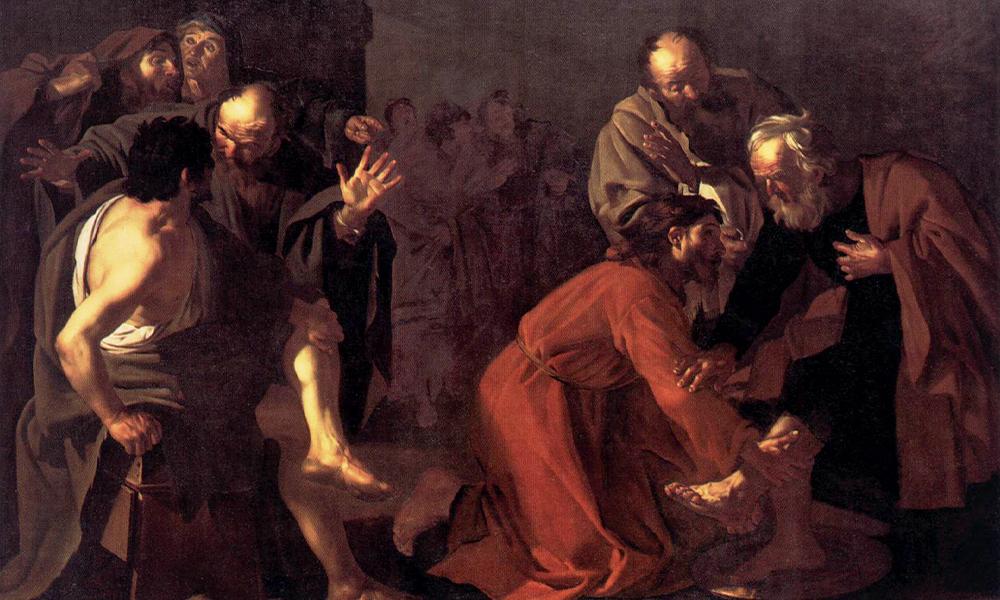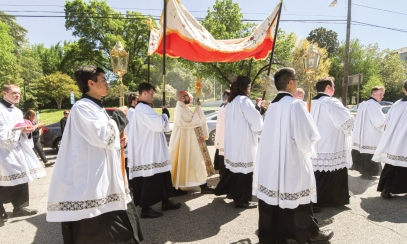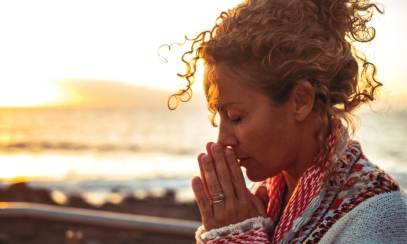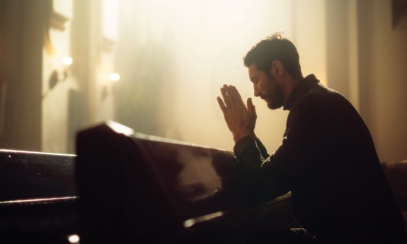
Part 6: The Eucharist is the Sacrament of Stewardship
Over the past several months we have spent time reflecting on the Eucharist and its significance, particularly as a sacrificial meal and as the complete self-gift of Christ himself. I want us to reflect now on our response to that gift, and one way of thinking about this is with the idea of stewardship.
Over the past several months we have spent time reflecting on the Eucharist and its significance, particularly as a sacrificial meal and as the complete self-gift of Christ himself. I want us to reflect now on our response to that gift, and one way of thinking about this is with the idea of stewardship.
In Catholic circles when we hear the word “stewardship,” we immediately think of money. And, no matter how much our parish stewardship directors continuously remind us that the concept consists of what we do with our time, talent and treasure, it seems as though the thought of it always lands on the “treasure” part. So, thinking about stewardship in a eucharistic way gets us to the heart of what it actually means. After all, it’s about serving God with all that we have been given, whether physical or spiritual. If this is true, then the broader sense of the term stewardship is centered on living out our baptismal call, deepened and strengthened in confirmation, to be on mission to serve the kingdom of God. Stewardship, then, is not simply about giving gifts — it is about being a gift.
The Eucharist gets us to the core of our faith, the proclamation of salvation in Christ which we call the kerygma, a Greek word meaning “proclamation.” It is centered on Christ’s complete, twofold gift of self: taking on our humanity in the incarnation and then offering himself in the sacrifice of the cross. The Eucharist makes Christ’s gift really and truly present to us.
His self-gift is something to be gratefully received but, because we receive it, it is also a calling and an example to be imitated.
The connection between the incarnation and the sacrifice of Christ is important in driving this point home to us. Christ’s sacrifice is saving for us because he has taken on our humanity. His self-gift includes an offering of our humanity. But, because of this, his offering of self is participatory. He invites us to join his offering and shows us that this gift of self is the truest sense of what it means to be human.
I cannot say it enough — the Eucharist is transformative. Ultimately, the grace of the Eucharist can transform us into what we receive, the Body of Christ, a gift offered to and received by God.
This unifying characteristic is why we call the Eucharist communion. This communion is the mutual exchange of self-gift, initiated by Christ and reciprocated by us. This, by the way, is ultimately a share in the divine life, the complete and mutual self-giving that is the Trinity.
Now what does this have to do with stewardship? Stewardship is about attending to what God has given us. The logic of sacrifice that underlies the Eucharist points to the fact that everything we offer to God was first given to us by God. Additionally, the act of offering acknowledges that everything we have, including ourselves, belongs to him. Any outward gesture of tribute is a sign of the deeper, fuller, inward offering of self. So we come to realize that we are really called to give everything to God and his service, especially and intentionally to give of ourselves.
The point I am making is not that we all need to completely divest ourselves of worldly possessions, although certainly some are called to that vocation of witness. Rather, the point is that an essential part of our spirituality as Catholics is realizing that everything we are and have should serve him and his kingdom. Our personal possessions are meant to serve the kingdom of God because we are always meant to be serving the kingdom of God.
Living out the virtue of stewardship begins with how we view ourselves and all that we have been given. In this light, stewardship becomes less about quantity and more about quality. Stewardship is not really about how much money we give — it is about how well we live out our calling to be gifts to God and to each other, a calling given to us in the Eucharist.
After all, the Eucharist shows us that nature finds its higher calling when it is transformed into a gift. In response to the gifts we have received — including Christ’s Eucharistic presence and our very existence — we only really realize our higher calling when we are given.
Michael Martocchio, Ph.D., is the secretary of evangelization and the director of the Office of Catechesis and Christian Initiation. Email him at mmartocchio@charlestondiocese.org.



